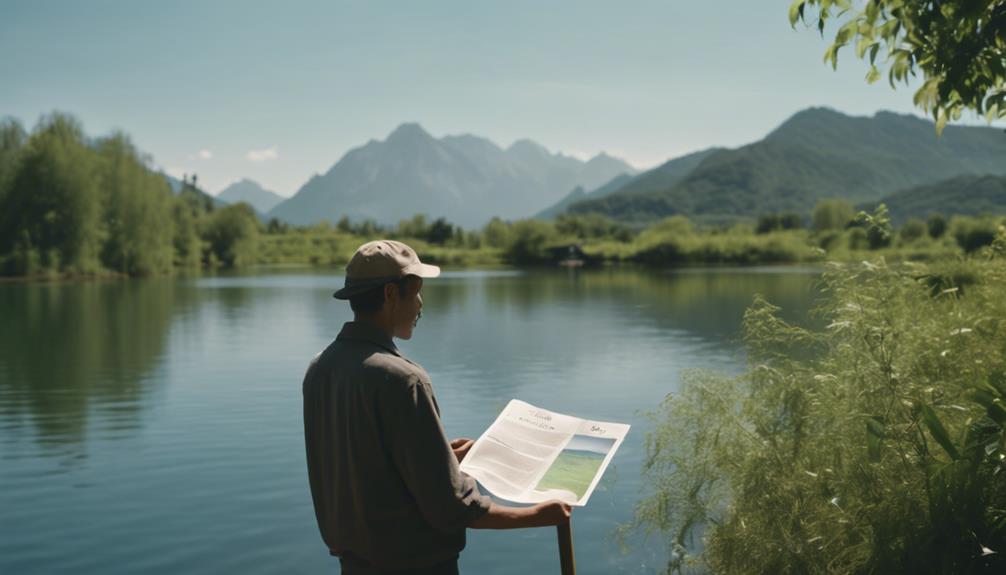Fishing is a popular pastime that connects people with nature and provides a sense of tranquility. However, before you cast your line into the water, one question often arises: Do I need a license for fishing? This comprehensive guide will explore the various aspects of fishing licenses, the reasons they are necessary, and how you can obtain one, ensuring you enjoy your fishing experience without any legal issues.
Understanding Fishing Licenses: What Are They?
Fishing licenses are permits issued by government authorities that allow individuals to fish in specific areas. These licenses exist to regulate fishing activities, contribute to conservation efforts, and promote sustainable fishing practices. By requiring a fishing license, states and countries can monitor fish populations, prevent overfishing, and ensure that aquatic ecosystems remain healthy. It’s essential to understand that fishing without a valid license can lead to legal repercussions, including fines or penalties.
Why Do I Need a License for Fishing?
The primary reason you need a license for fishing is to protect fish populations and their habitats. Many regions have specific regulations to manage fish stocks, which can be threatened by overfishing. Fishing licenses help to fund conservation programs, research, and the maintenance of natural habitats. Additionally, having a license ensures that anglers are educated about local fishing laws, species identification, and sustainable practices. This knowledge helps to preserve aquatic ecosystems for future generations.
Who Needs a Fishing License?
In most jurisdictions, anyone over a certain age (often 16 or 18) is required to have a fishing license. This requirement typically applies to residents and non-residents alike, though some states may offer exemptions for specific groups, such as disabled individuals, active military personnel, or those participating in designated free fishing days. It’s essential to check the regulations in your area to determine if you need a license and whether any exemptions apply to you.
Types of Fishing Licenses Available
Fishing licenses vary widely depending on the location and the type of fishing you plan to do. Common types of licenses include:
1. Annual Licenses: These are valid for an entire year and are the most common choice for frequent anglers.
2. Short-Term Licenses: Perfect for visitors or those who only fish occasionally, these licenses may be valid for a few days or weeks.
3. Specialty Licenses: Some areas offer licenses for specific types of fishing, such as saltwater, freshwater, or fly fishing.
4. Youth Licenses: Many regions provide discounted or free licenses for younger anglers to encourage fishing amongst youth.
It’s important to select the appropriate license based on your fishing habits and the regulations of the area where you plan to fish.
How to Obtain a Fishing License
Obtaining a fishing license is typically a straightforward process. Most states and provinces offer several convenient ways to purchase a license:
1. Online: Many fish and wildlife agencies have websites where you can purchase a fishing license quickly and securely.
2. In-Person: You can visit local government offices, sporting goods stores, or bait shops that are authorized to sell fishing licenses.
3. By Mail: Some areas allow you to request a fishing license via mail, though this option may take longer to process.
When applying for a license, be prepared to provide personal information such as your name, address, and date of birth. Some jurisdictions may also require you to pass a fishing education course, particularly for youth licenses.
Fishing Regulations You Should Know
In addition to needing a license, it’s crucial to familiarize yourself with local fishing regulations. These regulations can include restrictions on fishing seasons, bag limits (the number of fish you can catch), and specific rules regarding fishing gear. For example, certain areas may prohibit the use of live bait, while others may only allow catch-and-release fishing for specific species. Ignoring these regulations can not only result in fines but can also harm fish populations and ecosystems.
Consequences of Fishing Without a License
Fishing without a license can lead to serious consequences. Most jurisdictions impose fines that can range from modest amounts to several hundred dollars, depending on the severity of the violation. In some cases, repeat offenders may face more significant penalties, including the loss of fishing privileges or even criminal charges. Additionally, fishing without a license undermines conservation efforts, as it contributes to overfishing and disrupts local ecosystems.
The Benefits of Having a Fishing License
Investing in a fishing license not only keeps you compliant with local laws but also supports conservation efforts and local wildlife agencies. The funds generated from fishing licenses often go towards maintaining public fishing areas, stocking fish populations, and conducting research to ensure sustainable fishing practices. Moreover, having a fishing license can enhance your fishing experience by providing access to exclusive areas and events. It also fosters a sense of responsibility among anglers, encouraging a community of sustainable fishing enthusiasts.
Conclusion
In summary, if you’re wondering, “Do I need a license for fishing?” the answer is almost certainly yes. Fishing licenses play a vital role in conserving aquatic ecosystems and ensuring sustainable fishing practices. By understanding the importance of fishing licenses, the types available, how to obtain one, and the regulations you must follow, you can enjoy your fishing adventures while contributing to the preservation of natural resources. So, before you head out to your favorite fishing spot, make sure you’ve got your fishing license in hand and are ready to follow local regulations for a responsible and enjoyable experience.
